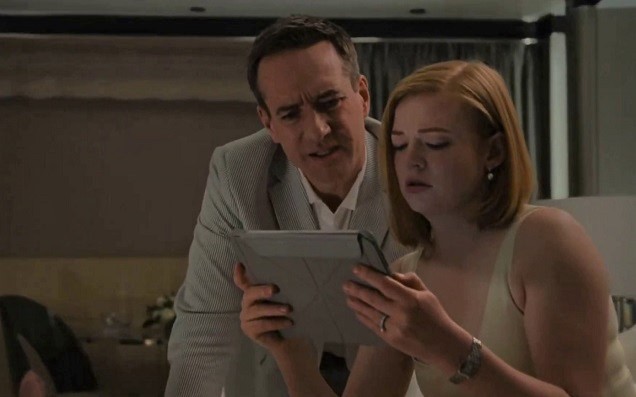
Good question. Important question. Awkward question, too. Great, now I’m anxious. I hate talking money. Which I guess is what makes this conversation so important.

Because, guys, we gotta get okay with talking dollar bills. It’s sad that we still dump money chat in the same taboo bin as politics and religion. I know banter about mountainous HECS debts or ten-year savings plans aren’t super sexy on a first date, especially when the prospect of paying the bill makes your palms sweaty, but it’s integral to fostering romantic intimacy. And I’m all about that romantic intimacy.
But at what point in our fledgeling relationship should we talk bank accounts?
There’s no hard and fast rule because money, like sex, is particular to every couple. Your financial vulnerability should grow with your relationship AKA you don’t need to bare your soul and your savings on the first date. Give it time. Get to know each other’s relationship with cash. See if you’re compatible before you open a joint savings account.

In the beginning…
… It’s wildly awkward to discuss anything money-related. Like, you’ve had one date and they paid for dinner. Does that mean the next date you have to pay? Do you just keep on taking it in turns until you die? Or at some point can you start splitting it down the middle?
When your relationship is still in its infancy, the most important thing is to simply be honest and transparent. This will set you on the right track for future money chats. If your person is proposing dinner at a hatted restaurant that’s way out of your budget – speak up. Don’t go into debt for deconstructed pavlova. Similarly, if you think you’ve paid for too many dinners and it’s for sure their turn, raise the issue of splitting bills.
The earlier you normalise money chat, the easier it becomes.

When you catch feels…
… Is when you can start deep-diving a little more. Is your person also a saver? Do you have similar goals? Is buying a house important to them or are they happy to rent forever? Are they intimidated by your enormous trust fund or turned off by your credit card debt? Does it make you anti-feminist to want a partner to financially support you? Does it make you less of a man to want to be supported? Money is TRICKY, guys.
If you’re thinking about settling into a long-term situation with this person, you gotta make sure you’re on the same page. Have a broader conversation about the things that might shape your life together – money being one of them. After all, if things work out this might be the person you take out a home loan with so now is probably a good time to start opening up more. Show this person the real you, debts and all.

So now you’re committed…
… Congratulations, you’ve found a match. But the money talk shouldn’t stop. You’ve entered wedding season, child-raising territory, new job explorations, mortgage life, travel funds. There might even be a pay gap between your two salaries. Or maybe one of you wants to take time off to write that sci-fi novel and you’ll need to discuss whether or not its financially feasible without breaking their creative spirit.
For long-term relationships to work, money should be an ongoing topic of conversation. Putting aside time to talk bills and savings and investments and allowances will mean you’re both informed and involved.

It may be difficult to talk about money with your partner, but it’s necessary and super duper important. You can’t just assume you and your partner are on the same page. A lack of regular, open, and respectful approaches to managing your money as a couple could lead to some very harmful situations, like financial abuse.
CommBank is keen to keep Aussies safe from financial abuse with the Next Chapter program, offering victims and survivors with support delivered in the right way. This includes a range of free resources to help you better understand and identify financial abuse, as well as how to recover and rebuild financially if you have experienced financial abuse. They even have a guide to help you with those tough money conversations with your partner.
We want to be financially secure and resilient Australians, so remember – practice makes perfect, just keep talking bank.
If you or someone you know is affected by domestic violence, please call 1800 RESPECT (1800 737 732) or visit 1800RESPECT.org.au. In an emergency, call 000.
To learn more about the help and support available through the CommBank Next Chapter initiative, visit commbank.com.au/nextchapter



